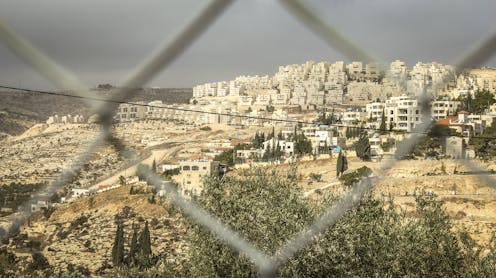
Israel has reportedly approved its largest seizure of land in the occupied West Bank in over three decades, according to a report released on July 3 by Israeli anti-settlement watchdog, Peace Now. The seizure involves more than 12 sq km of land in a key corridor bordering Jordan.
Land that is privately owned by Palestinians in the West Bank can be declared as “state land” by Israel and subsequently seized. One of the primary outcomes is the establishment or expansion of Israeli settlements on the land, which are widely considered illegal under international law.
According to the Israeli authorities, the recent land seizure is necessary for “security and development”. However, a spokesperson for the UN, Stephane Dujarric, called it “a step in the wrong direction”, adding that “the direction we want to be heading is to find a negotiated two-state solution”.
The move follows a series of similar land grabs so far this year. Israel seized 2.6 sq km of land in the West Bank in February, and a further 8 sq km in March. These actions are part of a strategy to expand Israeli control of the West Bank and undermine the prospect of a Palestinian state.
There has been a massive expansion in the number of settlements over the past three decades. In 1987, there were 60,000 Israeli settlers living in the West Bank (excluding East Jerusalem). This had grown to 247,300 by 2005 and 465,400 by 2021.
These numbers look set to accelerate further. The Israeli government, led by Prime Minister Benjamin Netanyahu, is heavily backed by a coalition of rightwing, ultranationalist parties. And many of its ministers have made the establishment of Israeli settlements in the West Bank a priority.
On June 28, far-right finance minister Bezalel Smotrich was quoted saying: “I will bring 1 million settlers. One settlement for every country that recognised Palestine as a state in the last month. This is their punishment.” Smotrich, who is himself a settler, has previously said his “life’s mission is to thwart the establishment of a Palestinian state”.
Many Israelis do not class these settlements as illegal. They view them as integral parts of ancient Israelite kingdoms and as a significant part of Jewish history and identity. However, the seizure of Palestinian land on such a large scale has historically always led to violence.
The second intifada, for example, was a major uprising by Palestinians that occurred between 2000 and 2005. It took place against the backdrop of the refusal of successive Israeli governments to abide by the Oslo accords and end the occupation.
But the groundwork was laid years before by the fast expansion of Israeli settlements. The number of Israeli settlers increased by at least 117% percent in Gaza and 46% in the West Bank in the period between 1993 and 1998.
The second intifada saw a significant escalation in hostilities between Palestinians and Israeli settlers. This included a wave of deadly suicide bombings and armed confrontations, which prompted the Israeli military to respond with force. Over the course of the second intifada, violence led to the deaths of an estimated 3,000 Palestinians and 1,000 Israelis, with thousands more injured.
Rising settler violence
Since the start of the ongoing war in Gaza, Palestinians in the West Bank have increasingly become the target of violence by Israeli settlers. The UN reported that attacks on Palestinians in the West Bank surged in the weeks following the October 7 attacks.
At least 115 people were killed, more than 2,000 were injured, and nearly 1,000 others were forced from their homes, citing violence and intimidation by Israeli forces and settlers. The new moves by the Israeli government to expand its control of the West Bank have only inflamed tensions further.
Amid rising violence, outgoing Israeli major general Yehuda Fuks condemned what he called “nationalist crime” that was undermining Israel’s reputation internationally and sowing fear among Palestinians “who did not pose any threat”.
By condemning the land seizures and settlement expansions, global bodies such as the UN and the EU could increase diplomatic pressure on the Israeli government to change tack. But, for now, it looks to be stepping up its efforts to claim more of the West Bank.
In February, former Israeli prime minister Ehud Olmert wrote that the Netanyahu government’s “supreme aim … is not the occupation of the Gaza Strip”. In Olmert’s view, “Gaza is just the introductory chapter, the platform this gang [the Israeli government] wants to build as the foundation upon which the real fight they are eyeing will be conducted: the battle for the West Bank and the Temple Mount.”
The expansion of settlements is part of this.
Serag El Hegazi does not work for, consult, own shares in or receive funding from any company or organisation that would benefit from this article, and has disclosed no relevant affiliations beyond their academic appointment.
This article was originally published on The Conversation. Read the original article.







